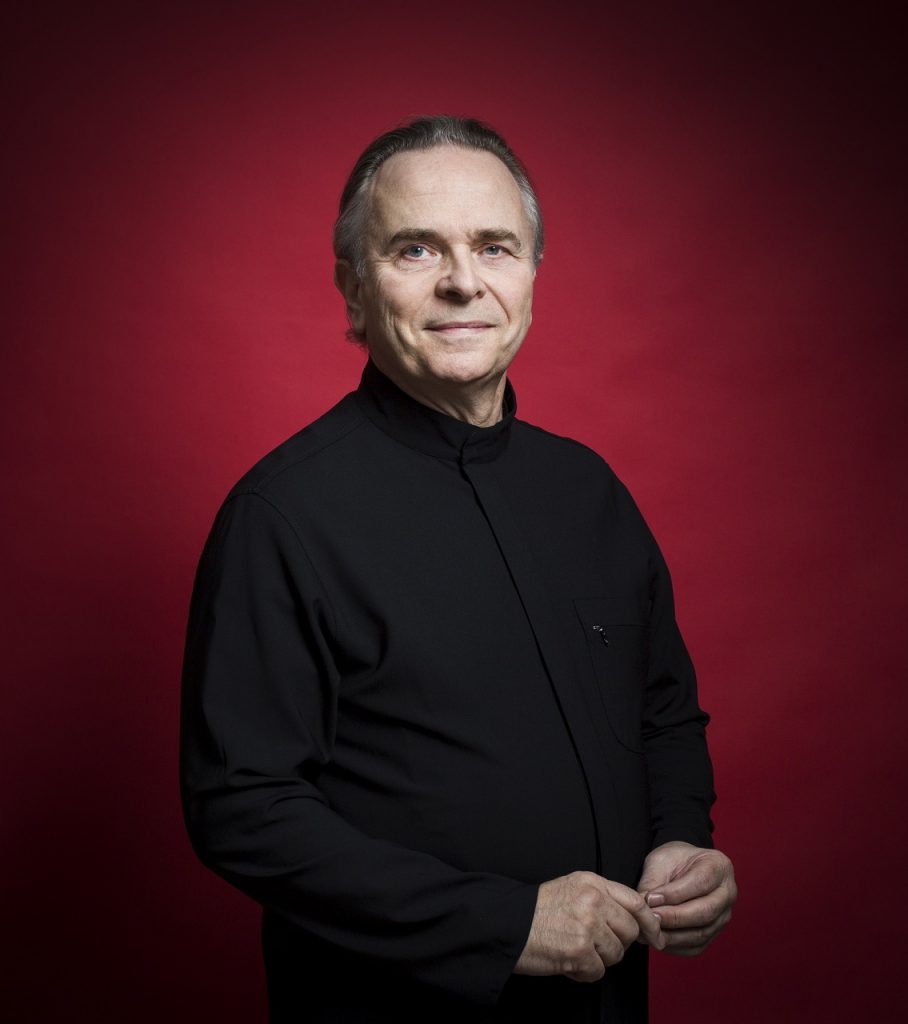Elder makes a strong impact with NSO in early 20th-century program

Mark Elder conducted the National Symphony Orchestra Thursday night in music of Ravel, Butterworth and Vaughan Williams.
Why should the National Symphony Orchestra have Mark Elder as its principal guest conductor, either formally or informally? Plenty of reasons came to the ears during the English conductor’s mini-residency with the NSO, which began last week. The second installment, heard on Thursday night in the Kennedy Center Concert Hall, offered four intense slices of music from the years around World War I.
On the first half were two pieces by English composers commonly heard from British orchestras but never before performed by the NSO. George Butterworth completed his rhapsody A Shropshire Lad in the years just before he was killed in the trenches of the Somme in 1916. Inspired by his own songs on the poetry of A.E. Housman, Butterworth composed the piece as a sort of postlude to it, a misty-eyed evocation of William Blake’s “green and pleasant Land,” the mythic Albion.
Elder insisted on the most delicate of sounds as the piece opened, a murmur of strings over which clarinets and violas traded a floating melody. He placed the harpist, who has a central role in the work, at the center of the orchestra near the podium, where the instrument remained all evening. The hushed dynamics set the tone of nostalgia that runs through Housman’s poetry, serving ultimately as a sort of epitaph for the composer, soon to become “townsman of a stiller town,” as Housman put it.
In an urbane introduction to the Third Symphony of Ralph Vaughan Williams, Elder explained the misleading nature of its nickname, “Pastoral.” Having befriended Butterworth, with whom he went on trips collecting folk songs in the countryside, Vaughan Williams also served in France with the Royal Army Medical Corps during World War I. The music is infused with nostalgia and loss, but it is also a remembrance of something beautiful in the midst of abject horrors.
The woodwind solos in the first movement, as well as for violin and viola, yearned achingly, but the second movement struck the deepest emotional chord. Both horn and trumpet solos, the latter offstage, caught the bittersweet memory of “The Last Post,” the bugle call that in British regiments served the same function as “Taps.”
The flute and harp, now nearer one another at the center, punctuated the darker, more military third movement. Most poignant was the wordless singing of soprano Madison Leonard, heard offstage over the distant rumble of the timpani. The orchestra built carefully sculpted crescendi in the elegiac middle section, before that keening voice returned, piercing the memory.
Elder has paired these English composers with a double serving of Ravel, from whom Vaughan Williams learned much about orchestration. First was the orchestrated suite Ma mère l’Oye, adapted from the original work for piano duo (before the prelude and interludes were added for a later ballet version). The fragile timbres of this piece, with only two horns representing the brass, seeped into the air like pastel washes.
After an unctuous opening “Pavane of Sleeping Beauty,” the woodwinds tittered maliciously as the breadcrumb-devouring birds in “Tom Thumb.” The silvery rush of the flutes and violin reflected the attractive Beauty against the lumbering contraforte representing the ugly Beast in the fourth movement. The din of metallic percussion — the score calls for celesta and glockenspiel, in addition to a keyboard glockenspiel — fueled a powerful crescendo to provide a climax at the end of the “Enchanted Garden” finale.
The brief Suite No. 2 from Ravel’s Daphnis et Chloé, with its much larger orchestration, served as a grand conclusion. Elder’s craftsmanship of sound remained rarefied and balanced, opening the “Lever du jour” section in a mist of burbling woodwinds with the strings floating their hovering melody atop them. In the “Pantomime” the flutes wove a tapestry of spider web filaments, down to the breathy sighs of the alto flute.
With the full group engaged for the concluding “Bacchanale,” set in lopsided 5/4 meter, including a veritable wall of percussionists, Elder offered a parting tour de force. It was not merely loud or fast, however, as Elder skillfully guided the musicians through a range of modified tempos and dynamics. Elder is not scheduled to return to Washington next season, but hopefully he will be back in the future.
The program will be repeated 11:30 a.m. Friday and 8 p.m. Saturday. kennedy-center.org; 202-467-4600


